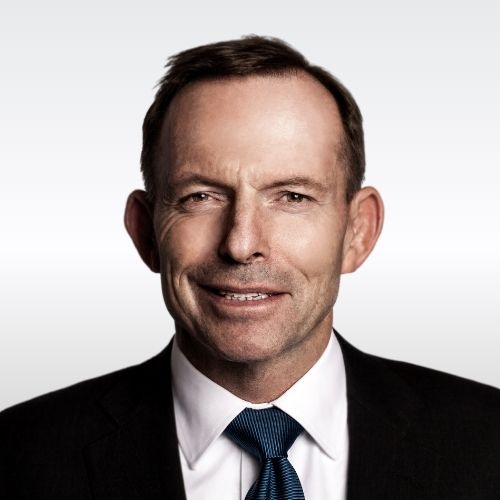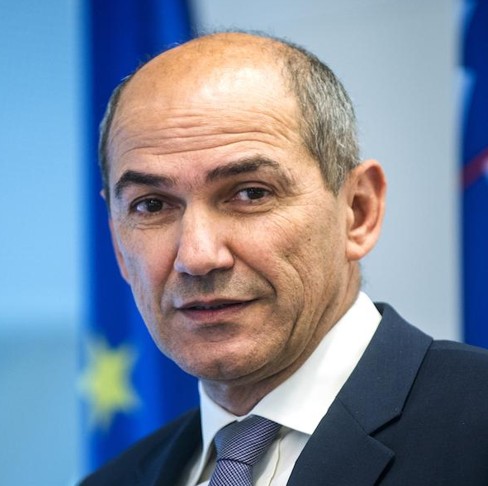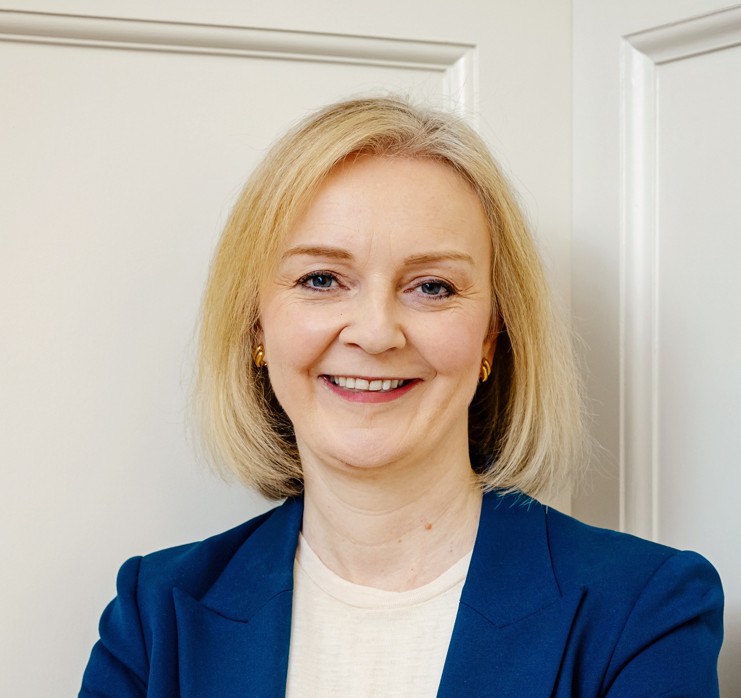Our International Advisory Board
Established in October 2025, our International Advisory Board brings together six former national leaders with a huge range of relevant experience. Our Commissioners are privileged to draw on the lessons these former heads of government can share as they continue to focus on economic analysis of the policies which will best deliver growth for Western economies.
International Advisory Board

Tony Abbott
Tony Abbott sat in the Australian Parliament between 1994 and 2019 and first held ministerial office in John Howard’s government, serving in a number of roles, including Minister for Employment, Workplace Relations and Small Business and Minister for Health and Ageing. He was elected leader of the Liberal Party in 2009, serving as Leader of the Opposition until 2013 when he was elected Australia's 28th Prime Minister. Under his government, the carbon tax and mining tax were repealed and significant free trade agreements were finalised with China, Japan and Korea. He has degrees in economics and law from Sydney University and in politics and philosophy from Oxford.

Janez Janša
Janez Janša has been leader of the Slovenian Democratic Party since 1993. He served as Minister of Defence between 1990 and 1994, a post he had also held during the Slovenian War of Independence, and has served on three separate occasions as Prime Minister of Slovenia: from 2004 to 2008, from 2012 to 2013, and again from 2020 to 2022. He holds a degree in Defence Studies from the University of Ljubljana.

Sebastian Kurz
Sebastian Kurz started his political career at an early age as Chairman of the Young People's Party of Vienna. In 2011 he entered the Austrian federal government as State Secretary for Integration and in 2013 became the country’s Foreign Minister. In 2017, he was elected Chairman of the Austrian People’s Party, which was victorious in the national election later that year, propelling him to become the youngest Chancellor in Austria’s history. He served in that office between 2017 and 2019 and again between 2020 and 2021. After leaving politics, he has focused on his work as an entrepreneur and investor, and has co-founded the AI-cyber company Dream Group.

Mateusz Morawiecki
Mateusz Morawiecki was an anti-communist opposition activist in Poland during his youth and enjoyed a successful career in business – with a long spell as managing director and chairman of Bank Zachodni WBK – before entering politics. He served variously as Minister of Development and Finance and Deputy Prime Minister in the administrations of Beata Szydło, before becoming Prime Minister of Poland in 2017 – a role which he held until 2023. A Member of Parliament since 2019, he is currently the Vice President of the Law and Justice party and the Chairman of the European Conservatives and Reformists Party. A former lecturer at the Wrocław University of Economics, he focuses on social and economic cohesion, economic development and adapting economic, financial and security policies to contemporary geopolitical challenges.

Petr Nečas
Petr Nečas was a Member of the Chamber of Deputies of the Parliament of the Czech Republic between 1992 and 2013 and was Deputy Chairman of the Civic Democratic Party between 1999 and 2010. He served as First Deputy Minister at the Ministry of Defence between 1995 and 1996, chaired the Defence and Security Committee of the Chamber of Deputies between 1996 and 2002 and was Deputy Prime Minister and Minister of Labour and Social Affairs between 2006 and 2009. Between 2010 and 2013 he served as Leader of the Civic Democratic Party and Prime Minister of the Czech Republic.

Liz Truss
Liz Truss sat in the British House of Commons as a Conservative MP between 2010 and 2024, continuously holding ministerial office for more than ten years between 2012 and 2022. After an initial spell as a junior education minister, she sat in the Cabinet in six different roles, prior to becoming Prime Minister: Secretary of State for the Environment, Food and Rural Affairs; Lord Chancellor and Secretary of State for Justice; Chief Secretary to the Treasury; Secretary of State for International Trade; and Foreign Secretary – as well as Minister for Women and Equalities. In 2022 she became the 56th Prime Minister of the United Kingdom and sought to implement her Plan for Growth, including a raft of tax cuts to kick-start economic growth and reforms to boost productivity. Regrettably these reforms did not command sufficient political and economic support and she reached the conclusion that she could not deliver the mandate on which she had been elected and stepped down. She holds a degree in politics, philosophy and economics from the University of Oxford.